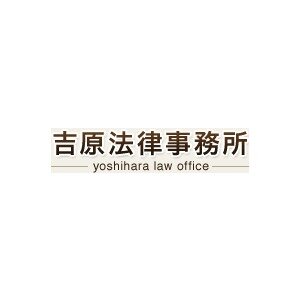Best Will & Testament Lawyers in Sapporo
Share your needs with us, get contacted by law firms.
Free. Takes 2 min.
List of the best lawyers in Sapporo, Japan
About Will & Testament Law in Sapporo, Japan
The concept of Will & Testament in Sapporo, Japan, is governed by Japanese national law, which applies uniformly across all regions including Hokkaido where Sapporo is located. Primarily, the Japanese Civil Code provides the framework for the creation, execution, and interpretation of wills. A will in Japan is a legal document that allows an individual, known as the testator, to specify how their assets should be distributed upon their death. It is crucial to adhere to specific formalities for a will to be considered legally valid. Although Japanese law allows for various types of wills, including holographic and notarized wills, notarized wills tend to provide more legal security.
Why You May Need a Lawyer
Seeking legal counsel when drafting or executing a will can provide significant benefits. Common situations where legal advice is advantageous include: understanding complex inheritance situations, dealing with international assets or beneficiaries, ensuring that the will complies with all legal requirements to avoid invalidation, managing potential disputes among heirs, and navigating tax implications for the estate. A lawyer in Sapporo can offer invaluable guidance to ensure that your will accurately reflects your wishes and effectively protects your beneficiaries’ interests.
Local Laws Overview
Sapporo, being part of Japan, follows the national legal framework concerning wills. Here are some key aspects:
- **Types of Wills:** The main types are holographic wills, which must be entirely handwritten, signed, and dated by the testator; and notarized wills, which require a notary and witnesses.
- **Witnesses:** A notarized will requires two witnesses. Anyone benefiting from the will cannot serve as a witness.
- **Inheritable Assets:** Typically include real estate, bank accounts, investments, and personal property.
- **Family Provisions:** Japan’s law includes compulsory shares for close relatives, ensuring that certain heirs receive a minimum portion of the estate.
- **Validity and Contests:** A will must strictly comply with legal formalities to be valid, a process facilitated through legal advice to minimize disputes among heirs.
Frequently Asked Questions
What types of wills are recognized in Japan?
Japan recognizes holographic, notarized, and secret wills, each having specific legal requirements for validity.
Can foreigners make a will in Japan?
Yes, foreigners can make a will in Japan concerning the assets located within the country, subject to applicable laws.
Are there specific rules for handwritten (holographic) wills?
Yes, holographic wills must be entirely written, signed, and dated by the individual without any assistance, and as of July 2020, a simplified probate process requires attachment of certain asset documentation.
Can Japanese law impact inheritance if I live outside of Japan?
Yes, if you own assets in Japan, Japanese inheritance law can significantly impact how those assets are distributed upon your death.
What is a notarized will, and why is it recommended?
A notarized will is prepared alongside a notary public and witnesses, ensuring its validity and lowering the probability of legal challenges after death.
What is a compulsory share, and who is entitled to it?
Compulsory inheritance rights ensure that close relatives like children, spouses, and sometimes parents receive a portion of the estate, regardless of the will’s content.
How can I change or revoke my will?
Wills can be modified or revoked at any time by drafting a new will or preparing a document stating the revocation of the existing one, following the same legal requirements as the original.
Is it necessary to register my will?
While not mandatory, registering a notarized will can provide additional security and make it harder to challenge.
What happens if someone dies without a will in Japan?
If a person dies intestate (without a will), Japanese law determines the distribution of the estate through statutory sharing rules based on family relationships.
How are disputes over a will typically handled?
Disputes can be resolved through discussions facilitated by legal professionals, mediation, or, if necessary, through a court proceeding.
Additional Resources
For further assistance, consider contacting institutions such as the Sapporo District Legal Affairs Bureau, the Japan Federation of Bar Associations, or private legal firms specializing in inheritance law. Additionally, the Ministry of Justice offers informational resources relevant to estate planning and wills.
Next Steps
If you need legal assistance with a will in Sapporo, consider scheduling a consultation with a qualified lawyer who specializes in estate planning and inheritance law. Prepare all relevant documents and questions you have to make the most of your consultation. Finally, take advantage of any local legal aid services you may be eligible for, which can offer guidance and financial assistance in pursuing legal action.
Lawzana helps you find the best lawyers and law firms in Sapporo through a curated and pre-screened list of qualified legal professionals. Our platform offers rankings and detailed profiles of attorneys and law firms, allowing you to compare based on practice areas, including Will & Testament, experience, and client feedback.
Each profile includes a description of the firm's areas of practice, client reviews, team members and partners, year of establishment, spoken languages, office locations, contact information, social media presence, and any published articles or resources. Most firms on our platform speak English and are experienced in both local and international legal matters.
Get a quote from top-rated law firms in Sapporo, Japan — quickly, securely, and without unnecessary hassle.
Disclaimer:
The information provided on this page is for general informational purposes only and does not constitute legal advice. While we strive to ensure the accuracy and relevance of the content, legal information may change over time, and interpretations of the law can vary. You should always consult with a qualified legal professional for advice specific to your situation.
We disclaim all liability for actions taken or not taken based on the content of this page. If you believe any information is incorrect or outdated, please contact us, and we will review and update it where appropriate.










